5 Things You Didn’t Know Acupuncture Could Treat
Acupuncture and pain relief go hand in hand. Every month new research is published confirming that acupuncture can effectively relieve a variety of pain conditions from migraines to back pain. In fact, there has been so much research in support of its efficacy that in the battle to fight opioid dependency, some major medical organizations are now rewriting their directives to recommend acupuncture and other non-pharmacological treatments along with, or in place of, more conventional treatments.
- As of January 1, 2018, the Joint Commission, an independent, not-for-profit organization that accredits and certifies nearly 21,000 health care organizations and programs in the United States, mandated that accredited hospitals are required to provide acupuncture and other non-pharmacological pain management modalities as a strategy option for managing pain.
- The guidelines of the American College of Physicians’ (ACP), updated in 2017, now “strongly recommend” physicians to look first at non-drug therapies, such as acupuncture, massage, and other mind-body techniques, for treating acute, sub-acute and chronic cases of low back pain.
Acupuncture treatment, which involves inserting very thin needles under the skin, is especially appealing because it is relatively safe and has very few side effects. And while most people are most familiar with its role in treating pain, there are also many lesser-known conditions that acupuncture treats effectively.
Here are 5 conditions you didn’t know that acupuncture could treat:
1. Environmental Allergies
An article in the American Journal of Rhinology and Allergy recommended acupuncture as an adjunct therapy for allergic rhinitis. The sniffling, sneezing, and runny nose that some people can experience in one season, or even all year long, can sometimes be managed with antihistamines. But for those who are not satisfied with conventional medicine or suffer from side effects of medications acupuncture can be beneficial. Studies have shown people with acupuncture had reduced allergy symptoms and required less antihistamine medication compared to control groups. Studies have even shown that acupressure on specific points on the face and ears can be helpful with no needles at all.
2. Symptoms of Menopause
Acupuncture can reduce the frequency of hot flashes and night sweats, symptoms that the majority of women experience during the period of menopause. A recent study showed a reduction in symptoms by 40%. Maximum benefits are experienced after eight treatments, and the benefits lasted for 6 months after the treatments stopped. While acupuncture alone can help reduce the symptoms of menopause, some cases may require a combination of acupuncture and Chinese herbal medicine for increased effect. The hormone balancing effect of acupuncture can also help with other symptoms of menopause including insomnia and mood changes.
3. Healing Scars
There are several ways to heal scars using Chinese medicine. Acupuncture needles can stimulate healing, and moxibustion, a warming treatment, can increase circulation. Liniments (soothing lotions to reduce pain) such as Zheng gu shui, aloe vera, or Vitamin E can be applied to encourage healing. Older scars and scar tissue can also be worked on even if they are decades old. This can help with increased mobility and decreased appearance. Direct scar treatments should not be used until after 1 month after an injury or post-surgery to avoid infection.
4. Stress Reduction
We don’t need to explain the experience of stress. Unfortunately, this is all too common for most Americans. It is at the root of a whole host of problems from digestive problems, menstrual cramps, depression, and chronic pain. Acupuncture has long been known to produce relaxation, reduce muscle tension, and increase mood. Recent studies have shown in biological models exactly why this is happening. We know that acupuncture releases endorphins, our body’s natural opioids. These are largely responsible for the pain-relieving effect. But these neurotransmitters also produce a relaxation response. Researchers at Georgetown University have shown that acupuncture in clinical models releases endorphins and lowered stress hormones including the sympathetic NPY peptide pathway. This is important evidence that suggests acupuncture can protect against the stress response.
5. Reduce Wrinkles
Cosmetic acupuncture* (also known as facial rejuvenation) is for people who are looking for a natural, alternative way to reduce the signs of aging and improve inner vitality for a healthy appearance to their face. Acupuncture provides a non-toxic, non-surgical way of looking and feeling your best at any age. The main benefit is a brighter and healthier-looking complexion. It reduces the appearance of fine lines, wrinkles, and dull skin by increasing circulation to the face, nourishing the skin and stimulating natural collagen production. It relaxes tension in the facial muscles for a more relaxed face. It’s not just a cosmetic process, you also get the benefits of an acupuncture treatment that has been shown to boost the immune system, reduce pain, relax and calm the body. Initial visits are ninety minutes and follow-up sessions are one hour. It generally takes six sessions and one month to start building collagen. Many report a glow to the skin after the first session. It’s recommended to get a series of twelve sessions, with weekly visits initially, and then every other week or once per month for maintenance. Acupuncture can be a complement to other cosmetic treatments, but people should consult their providers as to how long to wait after fillers, injections, and other dermatological treatments. A 30-minute consult is available for more information.
* Cosmetic acupuncture patients must have received a diagnostic exam by a licensed physician within the last 6 months and provide a documented recommendation for the treatment.

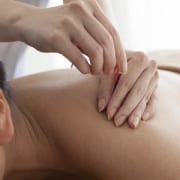

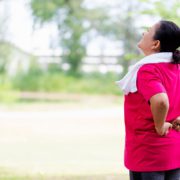

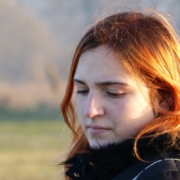
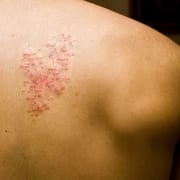


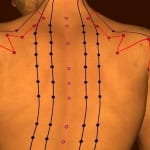

Leave a Reply
Want to join the discussion?Feel free to contribute!